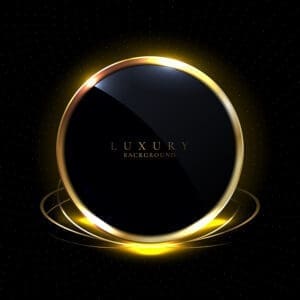 At the end of September 2015, Facebook had over 1.55 billion monthly active users, which is a 14 percent increase over the same period of the previous year. Furthermore, in September 2015, 1.01 billion people logged onto Facebook every day. In other words, Facebook is much too big for any business to ignore, especially an independent hotel.
At the end of September 2015, Facebook had over 1.55 billion monthly active users, which is a 14 percent increase over the same period of the previous year. Furthermore, in September 2015, 1.01 billion people logged onto Facebook every day. In other words, Facebook is much too big for any business to ignore, especially an independent hotel.
Facebook is a social media platform that helps level the playing field for independent hotels. Chain hotels have massive budgets to spend on marketing, but on Facebook, the size of your budget is nowhere near as important as how you use it. An independent hotel on a shoestring budget can “demolish” a chain with millions to spend on marketing, because success on Facebook is based on your ability to connect with and engage your audience, not on how much money you can throw at ads.
Create engaging content to level the playing field
The key to succeeding on Facebook is engagement, but how can an independent property create engaging content? How can you create the type of content that will not only have your audience coming back repeatedly, but also sharing that content and even closing the deal by making a booking? Here are a few suggestions to help you do just that.
1. Use images
We live in a digital world where much of the content we interact with is text. However, text alone doesn’t cut it anymore. No matter how great the content is, no matter how interesting or how well written, people aren’t satisfied with only text anymore. They want to see images. Again, the adage of a picture is worth a thousand words holds true. And nowhere is that more obvious than on Facebook.
According to Wishpond, posts that include an image receive 180% more engagement than posts without photos. The same source also states that people upload over 300 million photos to Facebook every day. Obviously, you need to include images in almost all of your posts.
So, take as many photos as you can of your property, the surroundings, your location, and even your guests if they agree to it. While you can’t keep posting photos of your rooms every day, you can certainly post images of your guests having a great time in your hotel as often as you like.
2. Simplicity is essential
On Facebook, it’s also important to keep your messages short and sweet. According to Track Social, posts that are 70 characters or less get over 3,000 likes, compared to posts that are longer than 230 characters, which get a little over 2,000 likes. That’s around 30% more likes for shorter posts. So, clearly, the shorter the post, the better the engagement. Also, shorter posts are more likely to be shared.
Getting your message across in a short post is often much harder than you might expect, so take the time to properly craft your message. You want people to understand your message and to get it quickly.
3. Engagement is the product of engaging
If you want your audience to be engaged, then you need to engage with them. That means responding to their comments – all of them. Yes, it might take time, but if you are going to be on Facebook, you might as well do it properly. So, make sure to respond to each comment individually.
When responding, though, take the time to think about your answer. This is especially important when it comes to people who are complaining about your brand. Your first reaction might be to get combative, but this is the biggest mistake you can make. You need to address people’s issues in a professional manner and do your best to solve the problem they had while staying at your hotel, as well as finding a way to make it up to them.
This way, other potential guests will see how well you treat your guests and are more likely to make a booking because they know that even if they do have an issue, you will do your best to sort it out. The way you react to negative reviews and comments – and how you deal with the issues – will actually win you more guests than positive reviews.
4. Video rules
Posts with video content are considered to be even more engaging than photos alone. Nowadays, videos are essential to generating massive levels of engagement. Since Facebook now offers an Autoplay feature, videos have become significantly more engaging than images. They are no longer static. As soon as someone scrolls down in their newsfeed, the video will start playing, and in most cases, people will stop to watch.
However, if you want to really succeed with video, then you need to follow a few rules:
- Minimize the number of sales videos: we’re not saying you should never post a sales video, but if you really want to increase engagement, then you need to post inspirational videos. These types of videos get many more likes and are shared much more often.
- Educate your audience: like inspirational videos, educational videos also get a lot of likes and are shared often. As an independent hotel, you can educate your audience on a variety of things, including the history of the area, how to cook certain recipes (to highlight your great restaurant), and even provide travel tips to the area where your hotel is located.
- Entertain your audience: whatever you do, do not sound like a robot droning on and on and on. Even documentaries nowadays have to be entertaining for people to watch them, so if you want to engage your audience, make sure you entertain them while you’re inspiring and educating them.
- Make your videos look professional: if you want people to take notice and boost your brand’s reputation, then your videos need to look professional. Don’t worry, you don’t have to spend a fortune on creating professional videos. Nowadays, you can get some great equipment for a steal and there’s plenty of cheap and easy-to-use software to help you edit your videos to make them look like they cost tens of thousands of dollars.
5. Make it easy for your prospects to book
After you’ve done all this work to engage your audience and provide them with amazing content, you need to close the deal. You don’t want them going off to someone else’s hotel because it was just too difficult for them to make a booking with you.
This is where Facebook Booking Engines come into play. These applications allow you to put up a booking button on your Facebook page. When potential guests click on it, they will be taken directly to your booking engine, bypassing your site. In other words, these Facebook engines make it very easy for your audience to make a booking because they can do so directly from your Facebook page. And if there’s one thing travelers love, it’s convenience and you can’t really offer more convenience than allowing them to book right off your Facebook page.
The biggest benefit of a Facebook Booking Engine is that it doesn’t give the potential guest time to change their mind. It also minimizes anything that might go wrong from the point your potential guest leaves your Facebook page, arrives on your site, and gets to the booking engine. The fewer things that go wrong in the process, the more likely it is that you will get the booking in the end.
The figures clearly show that independent hotels simply cannot afford to ignore Facebook. Considering that the costs of marketing effectively on Facebook are minimal, it’s also a great way to level the playing field with large chain hotels. In fact, independent hotels often do a better job on social media than chains because they don’t to go through multiple approval levels for each post. Plus, it’s a lot easier for independent hotels to personalize their messages and show the human behind the brand because they are personally invested in making their business a success.
However, just being an independent hotel doesn’t guarantee success. You need to follow a few rules and put yourself in your guests’ shoes to be able to engage with them. Remember, keep things simple, post images and videos, and interact with your guests on Facebook and they will love you for it. To make sure that love is channeled in the right direction, integrate a Facebook Booking Engine into your page to make it as easy as possible for your guests to make that booking.
About the author
 Sarah Miller is a Content Development & Marketing Specialist at Hotelogix. She hails from Seattle and has a strong passion for writing. Sarah handles media relations and can be contacted at sarah.miller@hotelogix.com.
Sarah Miller is a Content Development & Marketing Specialist at Hotelogix. She hails from Seattle and has a strong passion for writing. Sarah handles media relations and can be contacted at sarah.miller@hotelogix.com.



















